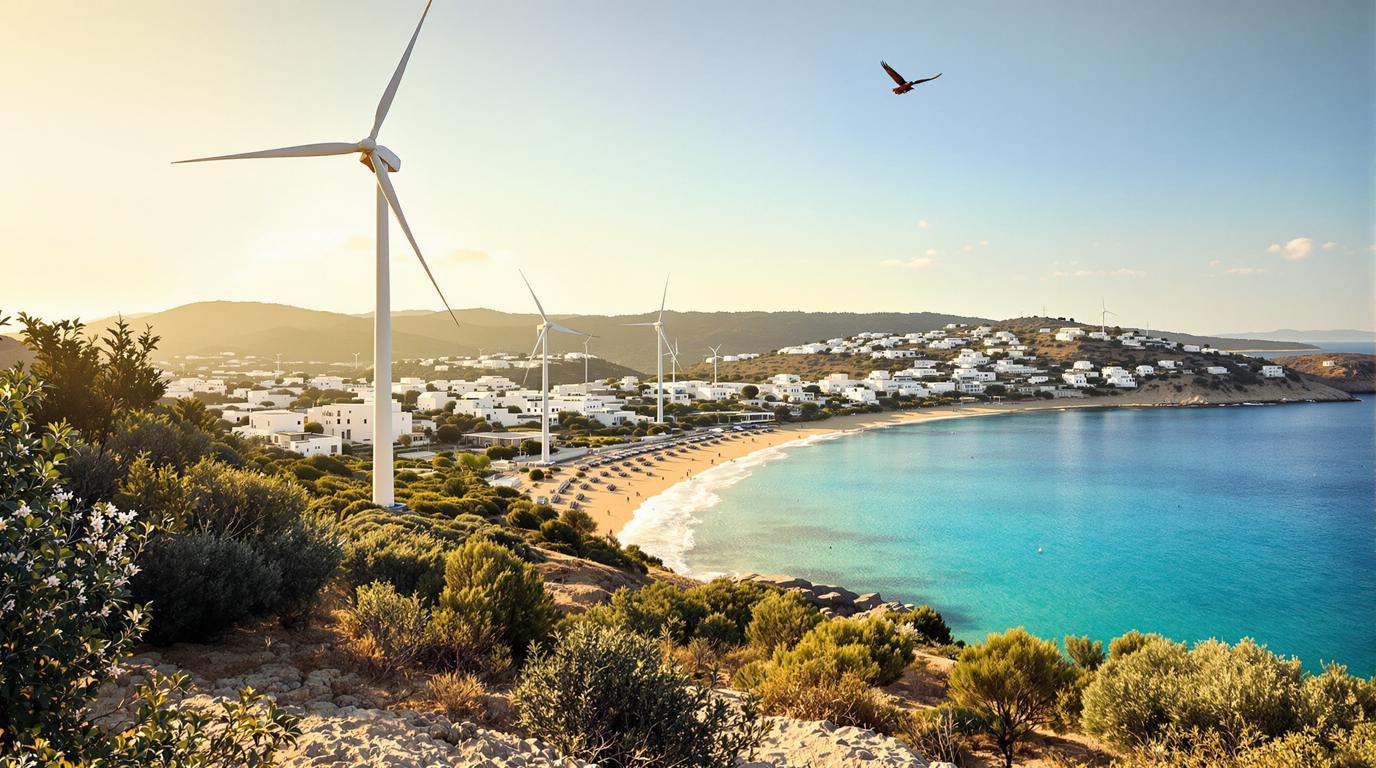The first time I encountered Tilos, I stood speechless on the ferry deck as we approached. Unlike its famous neighbors Rhodes and Kos, this diminutive Dodecanese island remains gloriously untouched. At just 16 square miles, Tilos has accomplished something remarkable – becoming the Mediterranean’s first energy self-sufficient island. This hidden paradise offers nature lovers the authentic Greek experience increasingly difficult to find elsewhere.
The Mediterranean’s green pioneer
Tilos stands as a beacon of sustainability in the Aegean Sea. In 2019, it became the first Mediterranean island to run entirely on renewable energy, using a smart hybrid system of wind and solar power. This environmental consciousness extends throughout the island’s culture, with plastic-free initiatives and organic farming practices that have earned it the title of Greece’s first certified zero-waste island.
“We believe small places can make big changes,” explains Maria Kamma, the island’s mayor. “Our sustainability projects aren’t just about protecting our beautiful home – they’re creating a model other islands can follow.”
Beaches where you’ll find solitude, not crowds
While some Greek beaches have gained international fame, Tilos offers pristine shores without the Instagram crowds. Eristos Beach stretches for nearly a mile of golden sand backed by tamarisk trees providing natural shade. The more adventurous should seek out Lethra Beach, accessible only by boat or a challenging hike, rewarding visitors with crystalline waters in complete solitude.
A birdwatcher’s paradise
Tilos serves as a crucial migration corridor between Europe and Africa, hosting over 150 bird species throughout the year. Spring and fall bring spectacular displays as rare birds of prey like Bonelli’s eagle and Eleonora’s falcon soar overhead. The island’s status as a protected ecological park since 2006 has preserved these vital habitats.
“What makes Tilos special for birdwatchers is the diversity in such a compact area,” notes Dimitris Akriotis, local ornithologist. “In a single day, you can observe coastal waders, mountain raptors, and wetland species.”
Ancient footprints and dwarf elephants
Perhaps Tilos’ most fascinating secret lies beneath your feet. The island was once home to Europe’s last population of dwarf elephants, which survived until approximately 4000 BC. The Charkadio Cave houses their remarkably preserved remains, offering insights into these unique creatures that stood just 5 feet tall.
Mikro Chorio: The ghost village that comes alive at night
By day, Mikro Chorio appears frozen in time – an abandoned village with stone houses gradually reclaimed by nature after residents relocated in the 1960s. But as darkness falls, something magical happens. The village’s single bar opens, strings of lights illuminate ancient pathways, and music echoes through ruins that become an unforgettable open-air nightclub.
Culinary treasures of Tilos
Island cuisine centers around locally-raised goat, fresh-caught seafood, and wild herbs that perfume the mountainsides. Don’t miss kavourmas (fried pork), koulousoufades (stuffed entrails), or the island’s signature pouggakia – pastries filled with almonds and sesame seeds. Dining at family-run tavernas like Kastro offers authentic meals where recipes have passed through generations.
Beyond the Greek islands
For travelers seeking similar unspoiled experiences, Mexico’s hidden island paradises or Thailand’s secret beaches offer comparable natural beauty. Those seeking value should explore affordable exotic destinations where authentic experiences don’t break the bank.
When to visit and where to stay
Visit between April-June or September-October for ideal weather without summer crowds. Accommodations remain refreshingly simple – family-run guesthouses and small hotels in Livadia and Megalo Chorio provide authentic hospitality. For a truly immersive experience, consider exploring by sailboat, allowing you to discover secluded coves inaccessible by land.
The Greek island where time moves differently
Tilos represents a Greece increasingly difficult to find – where genuine connections with locals happen naturally, where nature remains pristine, and where traditional ways of life continue uninterrupted. In our hyperconnected world, this tiny island offers something increasingly precious: the space to disconnect, breathe deeply, and rediscover the simple joy of being present in a truly extraordinary place.
